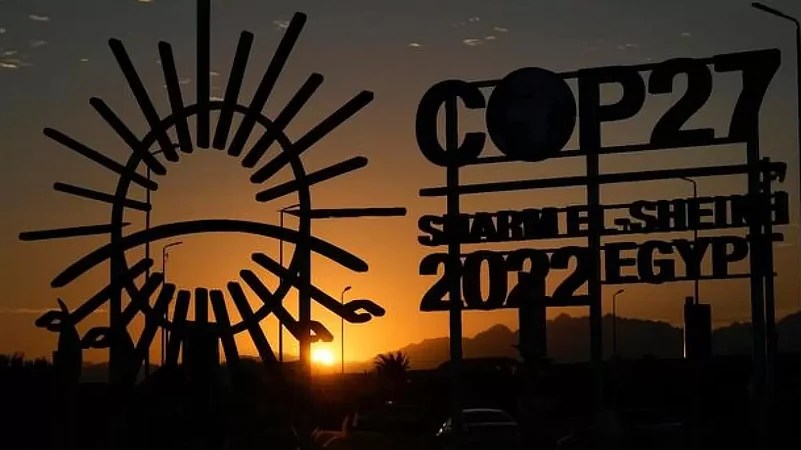Last year, climate activist Greta Thunberg summarised the COP26 Glasgow Summit as “Blah, blah, blah...” This year, at the Sharm El-Sheikh Summit, world leaders have delivered what is being described as a ‘breakthrough agreement’ on dedicated Loss and Damage Fund for vulnerable countries.
This looks like a victory for the decades-long efforts of small island developing states (SIDC), who gave the concept and gradually found support in other emerging market economies and the least developed nations.
According to UN report, from 1970 to 2019, climate-change induced natural hazards accounted for 50 per cent of all natural disasters, 45 per cent of all reported deaths and 74 per cent of all reported economic losses.
Over two million people died in these climate-related disasters and resulted in about $3.64 trillion in losses for the global economy. Also, more than 91 per cent of the deaths occurred in developing countries.
It does not mean that climate-related disasters occur more in developing world than the developed side of the world. It only highlights the vulnerability of poorer nations due to paucity of funds in dealing with them, dependence on agriculture by large population and the resultant food insecurity.
However, the announced agreement leaves much to be desired as all the nitty-gritty of the deal —as to how much fund will be mobilised and who will get it— has been passed on to transitional committee which will only meet by March 2023. The question on whether China and India, the world’s largest and third largest polluter, respectively, but having no role in cumulative historical emissions, should be asked to pay up remain unanswered. Yet, it can be easily inferred from the past negotiations that pressure would be built on China and India to contribute, similar to how India was earlier coerced into committing to a net-zero target.
Moreover, as assessed by the Centre for Science and Environment, the adopted decision does not mention the principles of equity and common but differentiated responsibilities, which are enshrined within the United Nations Framework Convention on Climate Change (UNFCCC) and the Paris Climate Agreement.
Notably, this is not the first time that the apex climate body has agreed to establish a dedicated fund for fighting off climate change-related issues. In the 2009 Copenhagen accord, the Green Climate Fund was mooted to help developing countries transition to low-emission and climate-resilient development. Based on the polluters-pay principle, developed countries were required to mobilise $100 billion by 2020 every year until 2025. This was formally agreed upon under the Paris Agreement.
An evaluation of the Green Climate Fund contributions so far raises some important questions about the developed nations' credibility when it comes to delivering on their promises.
According to Green Climate Fund database, as of now, only $11.4 billion has been committed by the developed nations – the historical polluters. Of this, $8.8 billion worth of projects are under implementation. Evidently, the amount is dismally short of the $100 billion target.
In addition, if we look at the financial instruments through which amount has been made available, funding through loans accounts for the highest proportion.

This reflects poorly on rich nations as it amounts to making the victim pay for the sins of the convict. Interestingly, in the entire process, the question on whether the world is on track to achieve net-zero emissions to limit the global temperature rise to 1.5 degree Celsius is carefully deflected.
According to the Intergovernmental Panel on Climate Change (IPCC), 1.5 degree Celsius is the tipping point beyond which irreversible changes in the climate system would occur. Going by the estimates of Climate Policy Initiative, the current investment levels are nowhere enough to keep the warming of the planet to 1.5 degree Celsius. Annual climate finance must increase by at least 590 per cent to $4.35 trillion to meet the objectives.
Fund mobilisation at such a scale is unimaginable in the current scenario, given how the progress has so far been snail-paced. Given all the delays and deflections until now, the creation of a dedicated fund is a welcome step since it means an acknowledgment of the role of historical polluters.
However, to establish the integrity of the newly formed dedicated fund, the stakeholders have their task cut out so that the new arrangement is not dubbed as yet another addition to the empty coffers meant for poor nations.






























